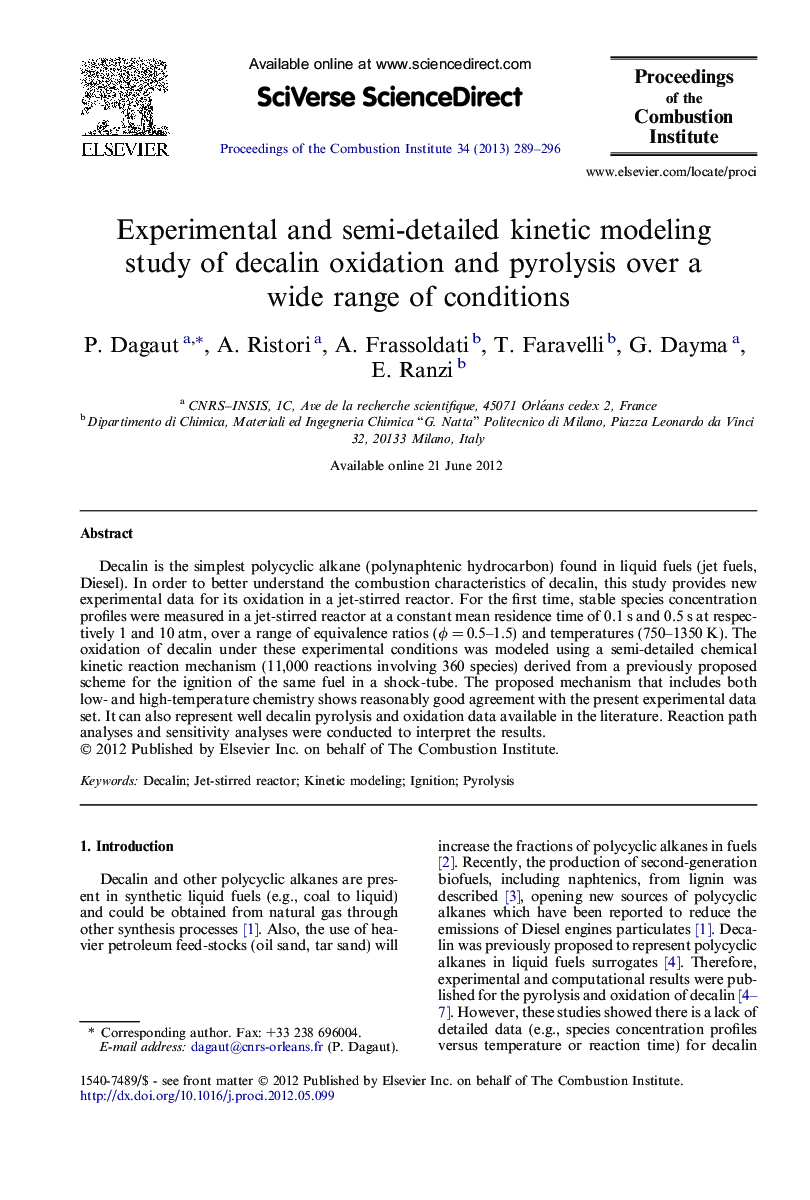| Article ID | Journal | Published Year | Pages | File Type |
|---|---|---|---|---|
| 241127 | Proceedings of the Combustion Institute | 2013 | 8 Pages |
Decalin is the simplest polycyclic alkane (polynaphtenic hydrocarbon) found in liquid fuels (jet fuels, Diesel). In order to better understand the combustion characteristics of decalin, this study provides new experimental data for its oxidation in a jet-stirred reactor. For the first time, stable species concentration profiles were measured in a jet-stirred reactor at a constant mean residence time of 0.1 s and 0.5 s at respectively 1 and 10 atm, over a range of equivalence ratios (ϕ = 0.5–1.5) and temperatures (750–1350 K). The oxidation of decalin under these experimental conditions was modeled using a semi-detailed chemical kinetic reaction mechanism (11,000 reactions involving 360 species) derived from a previously proposed scheme for the ignition of the same fuel in a shock-tube. The proposed mechanism that includes both low- and high-temperature chemistry shows reasonably good agreement with the present experimental data set. It can also represent well decalin pyrolysis and oxidation data available in the literature. Reaction path analyses and sensitivity analyses were conducted to interpret the results.
